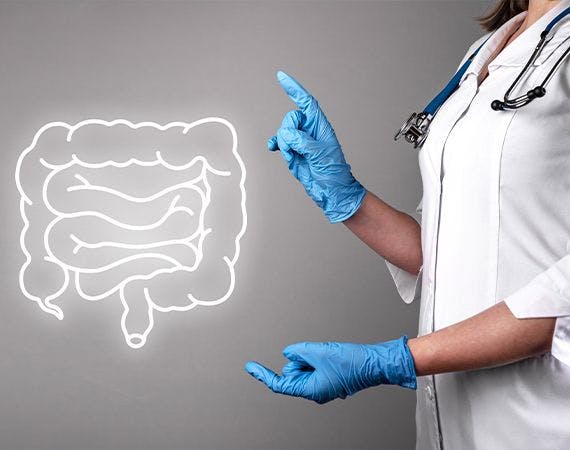
What is Sigmoidoscopy?
A sigmoidoscopy is a medical procedure enabling your doctor to examine the interior of your sigmoid colon. Utilizing a flexible tube equipped with a tiny camera and light, similar to a colonoscopy, aids in diagnosing conditions such as polyps and cancer.
Why is it done?
A sigmoidoscopy serves as a diagnostic tool to assess specific conditions or structures within the lower colon, including:
- Polyps
- Tumours
- Ulcers (sores)
- Inflammation (redness and swelling)
- Haemorrhoids
- Diverticula (pouches on the colon wall)
- Strictures (narrowing of the lower colon)
It also aids in investigating symptoms such as changes in bowel habits, lower abdominal pain, itching around the anus, blood or mucus in stool, low iron levels, and low blood counts. Moreover, sigmoidoscopy is utilized as a screening test for colon and rectal cancers, as recommended by health experts for both men and women beginning at age 50. Your healthcare provider may suggest a sigmoidoscopy for various reasons, and if polyps are detected, a colonoscopy may be recommended for further examination of the entire colon.
What happens during Sigmoidoscopy?
Before the procedure, your doctor will instruct you to lie on your left side on an examination table. They will then insert a slender, flexible tube known as a sigmoidoscope into your anus. Equipped with a light and a tiny camera at its tip, the tube transmits images onto a monitor for your doctor's observation. Additionally, the tube gently inflates your colon with air to facilitate examination.
While you may experience some discomfort, the procedure is typically not painful. Sedation is not usually administered during a sigmoidoscopy, so your doctor may request occasional shifts in position to aid in manoeuvring the scope.
If your doctor identifies any polyps or growths, they may remove them. Furthermore, small tissue samples may be taken for further analysis if any abnormal areas are detected in your colon.
Although risks are minimal, there is a remote possibility of a tear occurring in the colon or rectal wall. If tissue samples are obtained, bleeding may occur at the extraction site.
The entire procedure typically lasts between 10 to 20 minutes. Most individuals can drive themselves to and from the appointment. However, if sedation or calming medication is administered, it is imperative to arrange for someone to drive you home afterwards.
What happens after Sigmoidoscopy?
Following a sigmoidoscopy, it's common to experience some bloating or cramping. However, it's essential to contact your doctor immediately if you encounter:
- Severe abdominal pain
- Dizziness
- Bloody stool
- Fever
These symptoms could indicate a more serious issue.
Your doctor will reach out to discuss the results of any biopsies taken during the procedure. If further testing is necessary due to a positive outcome, you may need to undergo the procedure again. A repeat procedure might also be recommended if your doctor cannot obtain clear images of your colon and rectum.
Feel free to ask your doctor any questions or concerns about your colorectal health or the test results. Open communication is vital to ensuring your well-being.
What are the complications of Sigmoidoscopy?
After a sigmoidoscopy, several complications may arise, including:
- Continued bleeding after a biopsy
- Inflammation of the lining of the abdomen (peritonitis)
- Perforation (hole) in the intestinal wall, though rare
Certain issues or circumstances may interfere with the effectiveness of a sigmoidoscopy:
- Prior use of laxative enemas, which may irritate the colon lining
- Presence of barium in the colon from a recent colon examination
- Inadequate bowel preparation before the procedure
- Factors hindering tube movements, such as strictures, adhesions (surgical scars), or chronic inflammatory disease
- Rectal bleeding, potentially obstructing visibility
Individuals may have unique risks that should be addressed with their healthcare provider before the procedure. Open discussion about any concerns is essential for optimal preparation and safety.
Speak to our experts about Sigmoidoscopy.
"Speak to our experts about sigmoidoscopy and gain valuable insights into this important diagnostic procedure. Our experienced team is here to address any questions or concerns you may have regarding sigmoidoscopy, a crucial tool in assessing colorectal health. Whether you're seeking information about the procedure, its potential benefits, or possible risks and complications, our specialists are dedicated to providing clear and accurate guidance. Don't hesitate to schedule a consultation with our experts to ensure you receive the personalized care and attention you deserve for your colorectal health."
FAQS
Health In A Snap, Just One App.
KNOW MORE
